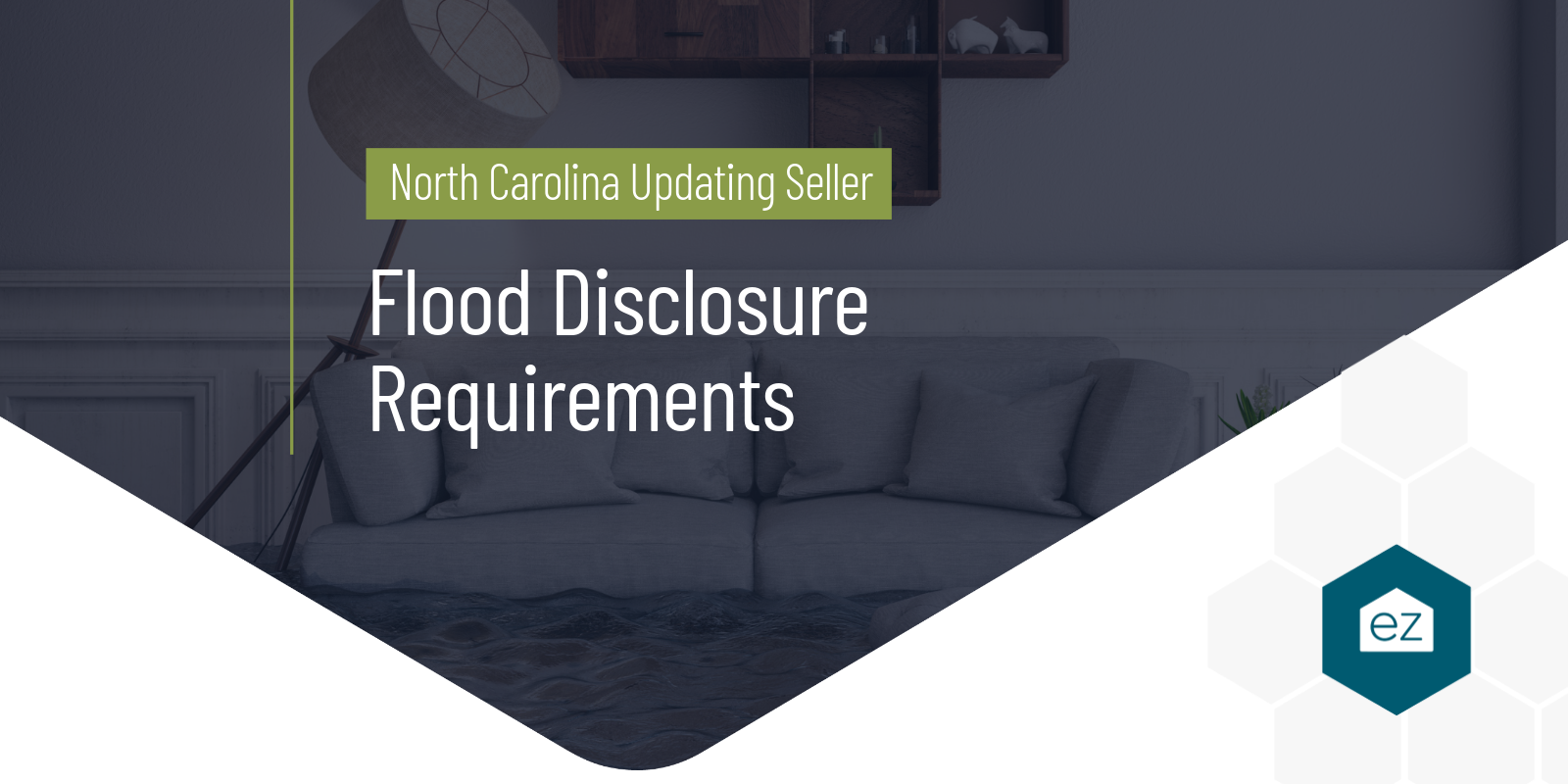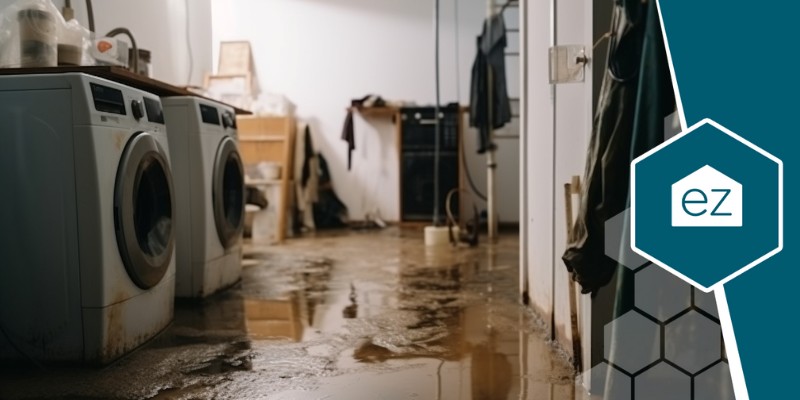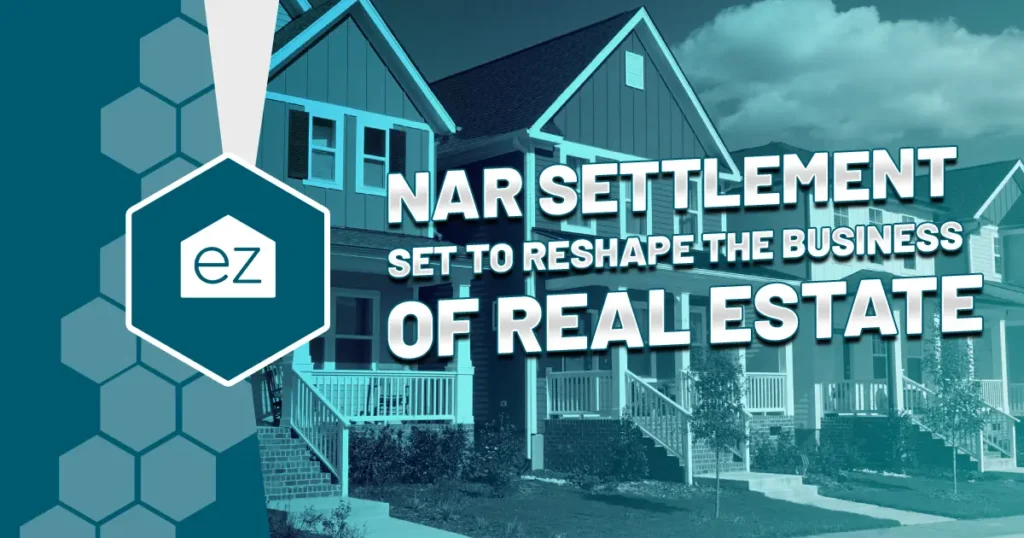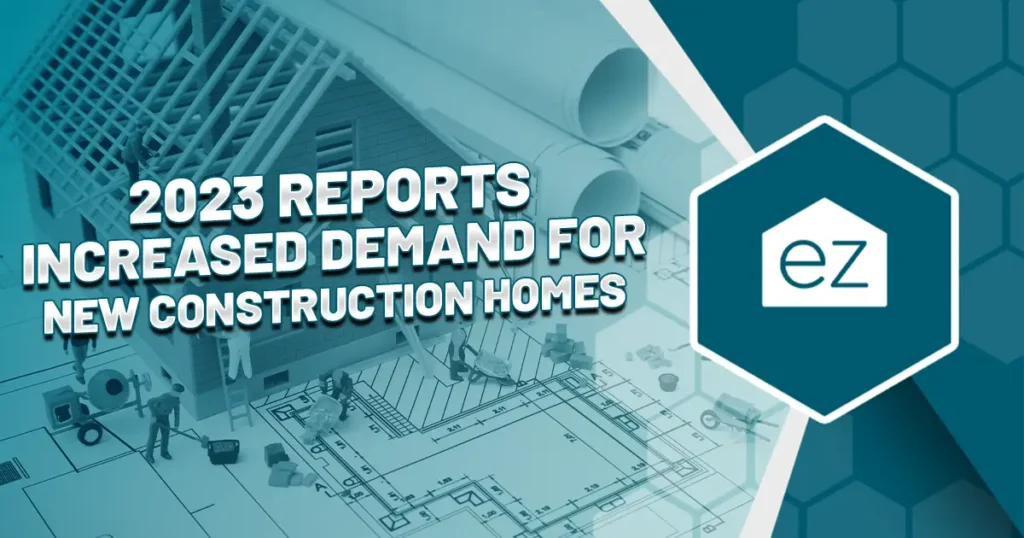North Carolina Updating Seller Flood Disclosure Requirements

North Carolina Updating Seller Flood Disclosure Requirements
It’s every home buyer’s worst nightmare: buying a home, completing an inspection, moving in, and finding out there’s far more damage they didn’t know about. In North Carolina, flood damage is a chief culprit in untold home repair issues. In 2021, over 13,000 homes purchased had been previously flooded, accounting for $16 million in annual costs.
But now there will be more transparency with North Carolina flood damage. The North Carolina Real Estate Commission is set to raise flood history standards for homeowners selling their property. They’ve recently voted to move a petition to expand flood damage transparency in the home buying process. Here’s what it means if you’re considering buying or selling a home in NC.
Where NC disclosure requirements stand
Currently, the law on the books requires homeowners to disclose whether the house is in a flood zone. But that doesn’t provide the potential homeowners with a lot of information. A house could be in a “flood zone” and have minimal history of flooding. Or it could have experienced severe flooding in a major disaster, enough to receive FEMA aid. Home buyers have been in the dark without requiring homeowners to disclose any more information than the property’s location in a mapped flood zone.
In fact, a recent study pointed out that North Carolina’s weak flood disclosure requirements could result in tens of thousands of dollars in damages the home buyer never anticipated. That doesn’t include the regrets a homeowner might have if they discover just how likely their home is to flood.
Knowing that a home is in a flood zone is one thing. But a new home buyer might figure that’s simply a requirement for disclosure or that the maps overstate flood risk. Having an actual history of the home’s flooding issues would provide real dollars-and-cents context for how likely the home is to flood again.
Real estate commission advances flood petition
In February 2023, the North Carolina Real Estate Commission voted to move forward with a new petition. The measure would add more questions about prior flooding to the real estate disclosure forms required by the state.

The idea is simple: require homeowners to disclose the history of flood damage on the property. That may surprise first-time homeowners who would expect this kind of information to be readily available, especially in a state like North Carolina, but that hasn’t always been the case.
The petition could ultimately result in changes that require more sweeping disclosure of a home’s flooding history. That includes:
- Whether the house has flooded before, especially if there’s been standing water that resulted in more long-term damage.
- Whether the homeowner received FEMA aid, which would indicate the severity of the flooding. It might also help to identify when the floods occurred, pinpointing whether the home suffered extreme damage in events that required FEMA intervention.
Flood damage is a significant problem
Flood damage is one of the most common risks facing homeowners. Across the United States, an estimated 14 million homes are at risk of flooding. It doesn’t have to be homes near a coastline or major river. Of all the basement homes in the US, about 98% have seen some water damage.

Water is especially damaging. The same statistics reported that the average home insurance claim for water damage in 2022 was in the five figures: $11,098. How often might a $10,000 repair bill swing the decision to buy a home the other way?
This is particularly problematic in North Carolina, where flooding is the second-most common hazard in the entire state. The state is at risk of storm surges from tropical storms, tidal floods, and heavy rains that cause inland flooding. By some estimates, tidal floods across the east coast could triple in likelihood by 2030.
So homeowners need to know that floods are common, are getting worse, and when they do happen, they do a lot of damage. And by damage, we mean to the home’s structure and to property like furniture, antiques, keepsakes, electronics, and vital documents.
If you don’t know whether a home has flooded in the past, you may be blind to these risks.
Why not “buyer beware?”
The old phrase “caveat emptor” is harder to justify when the assets in question could determine a home buyer’s future financial situation.

In 2022, for example, a FEMA analysis of the disclosure requirements in North Carolina found them to be sorely lacking. North Carolina only had 1.5 state-mandated flood risk disclosure requirements. Compare that to Louisiana’s required ten or Texas’s eight, and you begin to see just how lax these requirements are compared to other states.
What’s more, the updated flood disclosure requirements have seen bipartisan consensus, with approximately 80% of polled North Carolinians showing support for stricter reporting requirements, according to the NC Utility Survey.
What disclosure will achieve
The goal: ensure that new homeowners don’t have to learn the hard way. Many of those 80% supporters may have had similar situations with a home purchase in the past. There may have been tens of thousands of dollars in damage over the years that weren’t disclosed in the seller’s documentation of the home history. The home buyer may simply have known that the house was located in a flood zone. That would increase future risk but would say nothing about the home’s past.
The 2022 average home value in North Carolina just tips the scales over $300,000. For many, it’s the largest purchase they’ll ever make. The new rules in place would ensure that home buyers will know what they’re getting for their future purchases.
Start Your Home Search
Preston Guyton
Share this Post
Related Articles
Real Estate News
White House Proposals Aim to Boost Housing Supply
Real Estate News
NAR Settlement Set to Reshape The Business of Real Estate
Real Estate News
2023 Reports Increased Demand for New Construction Homes
Real Estate News





